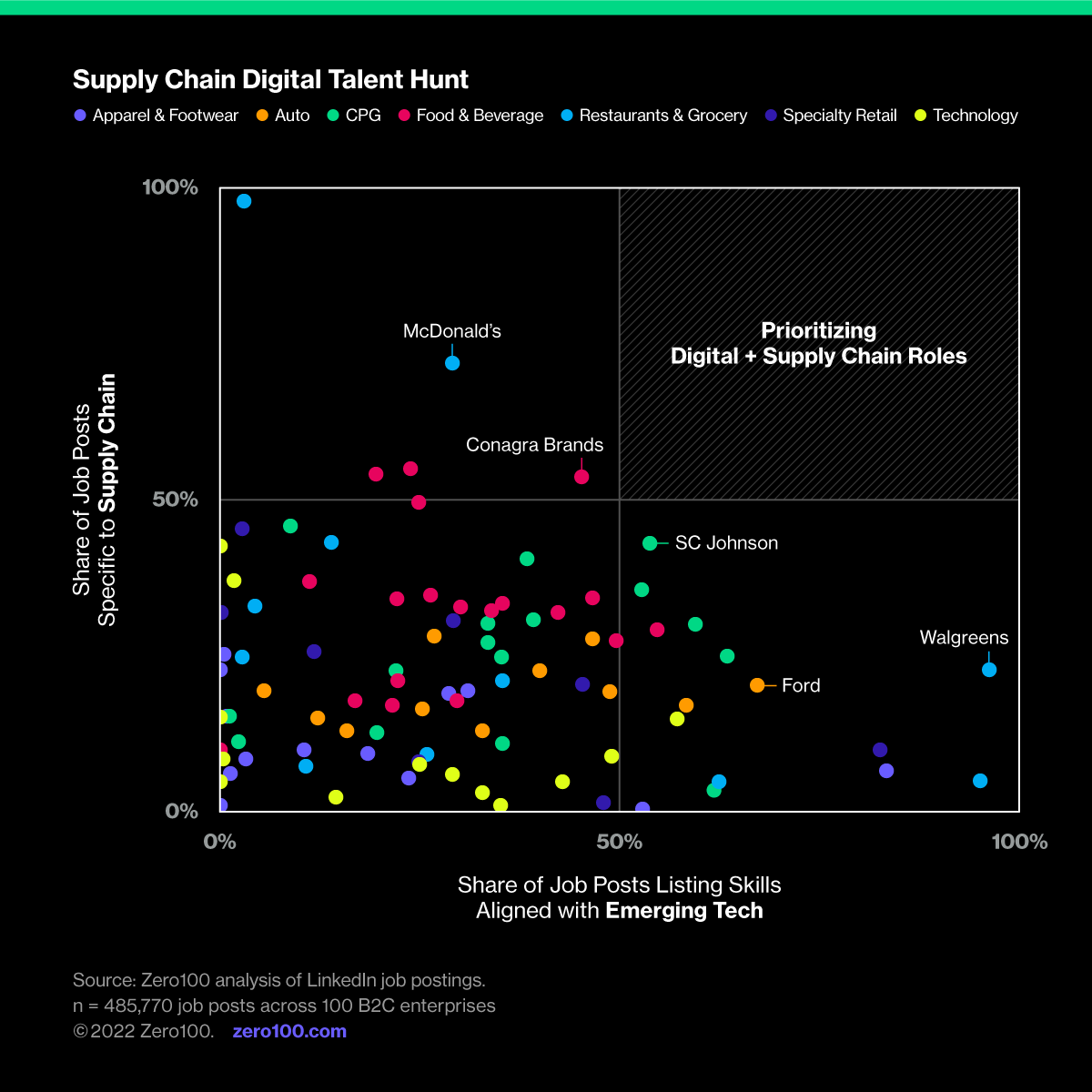
Are Tech Layoffs a Chance to Upskill Your Supply Chain Team?
For supply chain executives looking to upskill talent for a digital future, the wave of tech layoffs is a golden opportunity to strategically land a few key hires and build a learning organization around them.
The tech industry has already laid off more people in the first few months of 2023 (170,000) than in all of 2022 and given the Fed’s steadfast commitment to inducing a recession in the US, it seems likely there will be plenty more. To supply chain executives looking to upskill for a digital future, this is a golden opportunity, but it may be less about bringing in a bunch of new people, than strategically landing a few key hires and building a learning organization around them.
Tech Industry Shakeout Doesn’t Equal a Flood of Software Engineers
One big watch out for anyone trying to scoop up a bunch of digital talent is that many of those layoffs were in sales (20% of all jobs cut), finance, or human resources (50% in some recruiting departments). Also, of those with tech skills who did lose their jobs, many were under-performers kept on because closely watched big names like Amazon, Meta, Microsoft, and Google would rather clean house when everyone else is doing it too for better “optics”. Plus, some of the best talent had already seen the writing on the wall and jumped to more promising tech startups in the commotion.
Employers beware… you’re not just rounding up low hanging fruit here. To attract and make the most of the handful available you’ll need to spark a talent transformation. Two tactics could help:
-
1
Create job descriptions that embed selected tech skills into specific supply chain roles
-
2
Design high-leverage work teams and training programs to maximize organizational learning
Write Better Job Descriptions
At Zero100 we analyzed 485,770 job posts across 100 big consumer brands to understand how technology skills are reflected in LinkedIn job posts. It turns out that most under-index on critical emerging technology skills as integral to supply chain roles.
For a few that do this well like Walgreens, SC Johnson, and Ford, the key is to write job descriptions for tech specialties like machine learning or data science, which are tied directly to supply chain roles including demand forecasting, supply chain optimization, network flow modeling, and pricing and promotions.

Most still fail this step by hiring tech specialties as add-ons, rather than systemic thinking techniques baked into functional roles. Getting this right not only surfaces your job listing to applicants who already have the skills you seek, but also to those who are keen and willing to develop as they learn within your team. Perhaps most important, this also forces hiring managers to understand exactly why they need a specific tech skill in their group and how it will change things.
The practice goes back 15 years to job descriptions posted on Apple’s website specifying detailed manufacturing engineering, metallurgy, and machine design skills in roles that were seen by the outside world as “sourcing”, since Apple outsourced manufacturing to Foxconn. The truth was more subtle with Apple’s own people mastering production technology skills at an extremely high level.
High Leverage Work Teams Can Amplify Skill Transfer
The tech talent diaspora may only bag a few additions to the typical supply chain organization, but if these are leveraged with team structures meant to teach others, it can multiply the impact. One retailer, for example, built a team in its logistics group around a single data science PhD, with an experienced tech program manager coordinating the work. Several operations leaders filled out this team in concentric circles with serious technology at the core, and outer layers of increasingly business specific knowledge driving use cases. This kind of high leverage work team (think centers-of-excellence) helps tech knowledge permeate the business, while business thinking focuses the tech. Both get better, faster.
PepsiCo’s digital transformation is a great example of this leverage model at scale. The company’s Digital Academy provides mandatory training in digital skills, tech terminology, user experience and more, with different curricula according to role. It then amplifies the learning by organizing initiatives into four pillars including digital, data analytics, transformation, and corporate strategy which are making fast progress.
Tech talent has been cocooned for too long. Maybe it’s time to persuade a few to start applying these skills to supply chain.